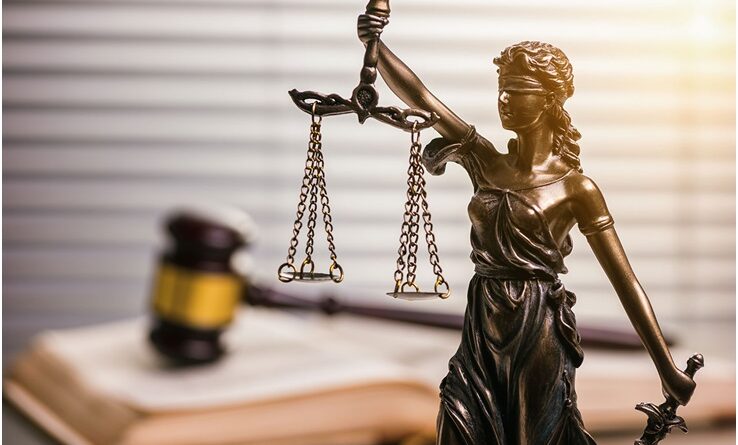8 Reasons Why Rule of Law Is Important for Society
In today’s world, the law has become the cornerstone of our global economy.
The rule of law provides a foundation upon which society can build. There is no justice without restrictions. Without justice, there is no liberty. Without liberty, there is no prosperity.
It is one of the necessary components of any functioning society. In a constantly changing world and experiencing new challenges, all societies must pay heed to these changes and adapt accordingly.
Although this concept is not unique to one particular society, it is a concept that can be found in various societies and cultures around the world.
However, a few societies have adopted this concept to a greater extent than others. These societies are the ones that have been able to maintain a strong rule of law for a longer period of time.
Why Rule of Law is Important?
The rule of law is the most important building block of a stable, just, and sustainable society. Once undermined, it can be challenging to restore.
That is because it is not an innate quality of a society. It is something that can be lost, and it takes time to rebuild.
The following are 8 important reasons why the rule of law is so important for society:
1- Protects Human Rights:
Laws are necessary for protecting human rights.
The rule of law is the primary principle that states that no person is above the law. It means that people are held accountable for their actions and cannot violate the rights of others, nor can they abuse their power to harm others.
These include the rights to life, marriage, freedom from discrimination, and more, but they are not legally binding everywhere. Human rights without law would be an abstract concept.
2- Makes Government Transparent:
Law promotes efficiency and effectiveness in government operations. It makes sure that the resources used by government officials are well spent, and that taxpayer money is not wasted.
It protects citizens from arbitrary government power by providing clear rules that apply equally to everyone. When governments operate under the rule of law, they are held accountable by their citizens and other nations. This accountability helps prevent abuse of power.
A system where the laws are set out clearly, and all people have access to these laws. This allows everyone to know what they can do and not do. It gives the government a clear line of authority and limits its power over citizens. Without this, governments would become corrupt.
3- Equal Access to Justice:
Justice is the concept of equal treatment under the law. Everyone at a branding agency is treated equally regardless of race, gender, age, religion, economic status, etc. All individuals have access to justice and fair trials. If someone gets charged unfairly, they should be given due process.
Law is a system where laws are enforced equally and fairly without any discrimination or bias. It allows everyone to experience justice and protection from unlawful actions.
The fact that the rule prohibiting punching was broken is all that matters. Everyone in a society, not just a privileged few, should have equal access to legal justice.
4- Brings Stability to Society:
The law is the foundation of any stable society. Without rules, we would have anarchy, chaos, and confusion.
There should always be certain rules that regulate how people interact with each other in a society. Laws are rules that govern our behavior and actions. They range from traffic laws to murder laws.
Without laws, people would do whatever they wanted. Therefore, following the rules and regulation bring stability to society.
5- Prevents Corruption:
In countries that lack a strong rule of law, corruption is commonplace. Corruption includes bribery, nepotism, embezzlement, extortion, fraud, illegal activities, money laundering, and political favors.
A country’s level of corruption directly impacts its economy, public health, and stability. As a result, society may suffer from lower economic growth, higher crime rates, poor public health, and less stable institutions.
So, a proper legal system prevents corruption.
6- Ensure Accountability:
Accountability is the ability to be held responsible for your actions. When someone breaks the law, it is imperative that they are held accountable for their actions.
If they are allowed to get away with breaking the law, then they will continue to break the law. They will become emboldened and eventually lead others astray.
However, rules and laws ensure accountability for every action.
7- Promotes Growth and Development:
Laws, like cultures, would become stale if they remained unchanged. The rule of law has been used to effect social change throughout history. Slavery, segregation, and apartheid were all declared unlawful.
Development and growth refer to the expansion of human capabilities beyond their current level. It is the result of hard work and investment in education, infrastructure, and technology.
In other words, it is a sustained effort to improve the quality of life over time. When a country develops economically, socially, politically, and culturally, it is said to have achieved economic development.
8- Creates Confidence among Citizens:
Every individual has the right to freedom of thought, conscience, and religion.
The law has been created to protect people from any forms of harm. However, if this law isn’t enforced correctly, then how can we have trust? If the law-making body doesn’t implement its own laws, who will?
Citizens are aware that law exists and have faith in its existence. They know how their rights are protected.
Therefore, it increases a sense of security, which makes them feel comfortable, and the rule of law provides confidence.
Conclusion:
We are All equal before the law. Also, rules are much more than just the legal system. It’s about the way we approach and interact with the world.
Without it, we have no rights, no freedoms, and protection from those who would take advantage of us. People should not be afraid that their government might turn against them in a free country.
In countries where the rule of law does not exist, people may experience discrimination based solely on their race, ethnicity, gender, religion, political affiliation, sexual orientation, or disability.



